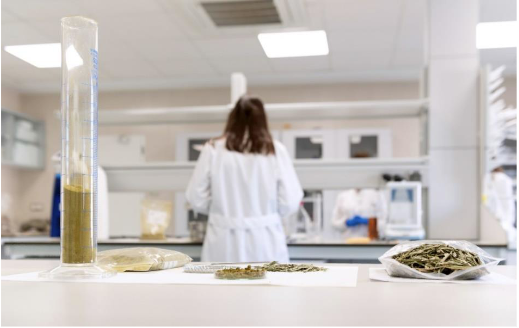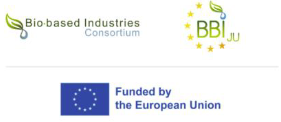
The OLEAF4VALUE project, a sustainable-oriented EU-funded initiative formed by a consortium of 16 expert partners that aimed at switching the way we think about olive leaves, has developed biomass valorisation strategies to solve the problem of olive leaves removal from the fields after 3 years of work. It has achieved significant milestones since its beginning back in July 2021 across various fronts:
- Partners provided diverse samples and experiences, leading to a comprehensive methodology for rapid biomass scanning, validated for future biorefinery operations.
- Five processing routes for the smart biorefinery have been designed to produce over 40 bioproducts from olive leaves, with sorting software near completion to optimize usage based on market demands and sustainability.
- Partners have developed biotechnological processes based on enzymes and microorganisms, have improved physicochemical properties, and have implemented a disruptive technology called MIPs (Molecularly Imprinted Polymers – Affinisep) to produce extracts with higher purity in terms of the active ingredient of interest.
- Olive leaf bioproducts, rich in polyphenols and triterpenes, have shown promising results as antioxidants andantimicrobials. Polyphenol-rich extracts can beneficially modulate human gut microbiota, and oleanolic acid-taurine can be possibly used as substance for cosmetics applications. Additionally, adding olive leaf extracts to the diet of Atlantic salmon has significantly shown improvement in fish farming sustainability by boosting disease resilience.
- SAMBIO (Smart Dynamic Multi-Valorisation-Route Biorefinery)’s modelling assessed valorisation route feasibility, emphasizing energy optimization for reduced environmental impact, while social analysis highlighted safety and consumer awareness as key for responsible consumption.
The proper management of by-products minimizes environmental impact by avoiding waste accumulation and pollution. The conservation of olive leaves in the field can lead to pest problems, among others. However, transportation is a logistical problem for the farmer and, on many occasions, burning these residues is the most efficient way, with the problems of soil degradation and atmospheric pollution that this can cause.
Therefore, giving a second life to these leaves minimizes the impact on crop productivity, in addition to the health of soil, water and air in agricultural areas, without entailing an economic loss for producers, since the added value of this raw material would also fall, to a large extent, directly on the primary producer. This comprises the goal of OLEAF4VALUE and the results mentioned above show successful advancements for the primary sector.
“The OLEAF4VALUE dream team has made a huge step forward in the valorization of an underexploited biomass such as the olive leaf, while developing a new innovative concept of dynamic biorefinery, that can serve as an inspiration to other industries. Natac has had the privilege and proudness of coordinating this project whose future industrial deployment will have a definite impact en the whole value chain and in the rural areas where biomass is principally located.” Affirms Jose María Pinilla, Head of Projects at Natac, OLEAF4VALUE Project Coordinator.
In conclusion, OLEAF4VALUE’s comprehensive efforts in characterizing olive leaf biomass have proven with preliminary findings to underscore the feasibility and sustainability of adopting cleaner biorefinery processes, showcasing the potential of olive leaf biomass in fostering innovative and eco-friendly solutions.
Contact
Salomé Robbert (OLEAF4VALUE project coordinator)
E-Mail: srobbert@natacgroup.com

This project has received funding from the Bio-Based Industries Joint Undertaking under the European Union’s Horizon 2020 research and innovation programme under grant agreement nº 101023256.
Source
OLEAF4VALUE project, press release, 2024-05.
Supplier
Bio Based Industries Joint Undertaking (BBI JU)
European Union
Share
Renewable Carbon News – Daily Newsletter
Subscribe to our daily email newsletter – the world's leading newsletter on renewable materials and chemicals









